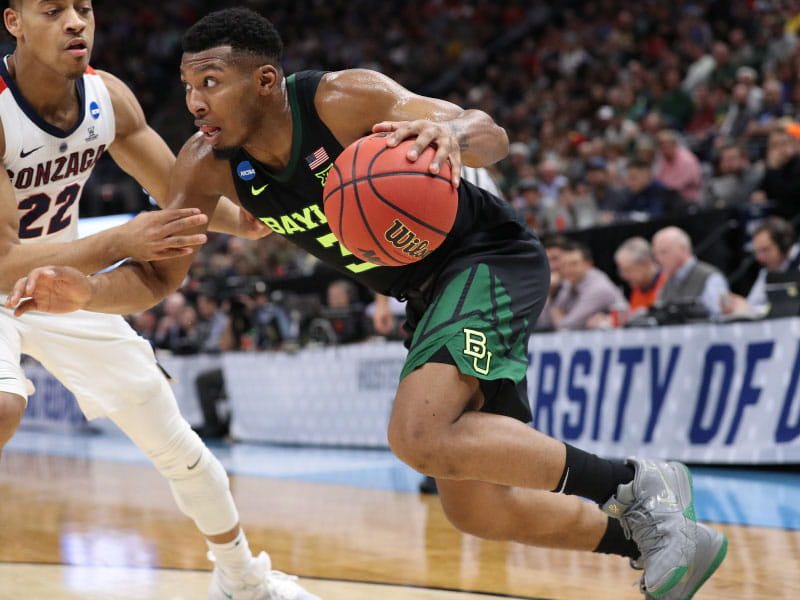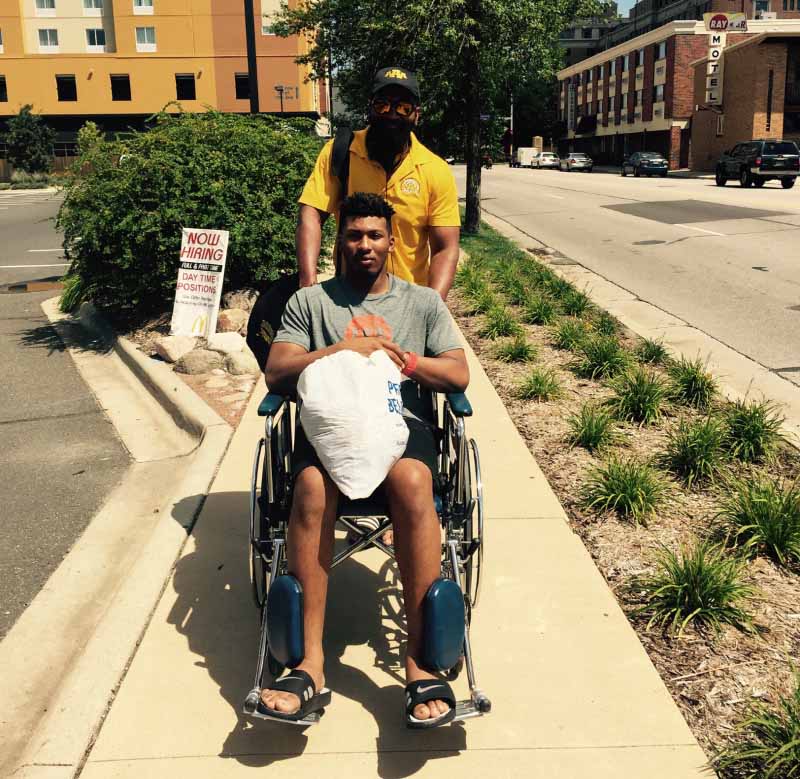Heart problem could've ended his college basketball career before it began. It didn't.
By Emily Halnon, American Heart Association News

When shooting guard King McClure showed up at Baylor University in 2015, he was one of the top recruits in the country. An NBA career seemed likely.
But before he even made it to his first college game, a doctor told him that his basketball career was over – forever.
Routine heart screening exams revealed that McClure had hypertrophic cardiomyopathy, or HCM, a condition that causes the walls of the heart chamber to become thicker, which can impede blood flow to and from the heart. HCM can increase the risk of cardiac arrest, especially during physical activity, like basketball. In 1990, college basketball star Hank Gathers collapsed on the court and died because of HCM. In 1993, Boston Celtics star Reggie Lewis died from HCM during an offseason practice.
In search of more answers – and, hopefully, a different opinion about his playing options – McClure flew from Texas to Seattle to see a specialist.
"He told me if I continued to play basketball, I would die," McClure said. "He would not clear me to return to the game – and he said I had to completely stop doing this thing that I loved."
McClure broke down in tears. He'd started bouncing a basketball when he was just 3 and had been playing competitively since he was 5.
"Basketball was my life," he said.
His mom refused to take no for an answer. She firmly believed her son would play again. With the help of Baylor men's basketball coach Scott Drew – and buoyed by the fact McClure had no symptoms and there was no family history of heart disease – they sought more insight.
McClure was also encouraged by Monty Williams, a former Notre Dame standout and NBA player (and now coach of the Phoenix Suns), who was also diagnosed with HCM before his own collegiate career.
The McClures weren't just shopping for someone to say what they wanted to hear. Given that there had been two decades since the deaths of Gathers and Lewis, they were seeking fresh scientific evidence that McClure could safely continue to play.
They found it at the Mayo Clinic in Rochester, Minnesota.
An HCM specialist said McClure could play again, as long as he had a device implanted into his chest to protect his heart. It's called an implantable cardioverter defibrillator, or ICD. If the machine detects an abnormal rhythm, it can shock it back into a safe range. While ICDs are commonly used to treat various heart problems, it's less common among those competing in high-level sports.
McClure got the ICD. On the first day of practice in 2016, he ran onto the court alongside his teammates, accompanied by a wave of gratitude.

"Basketball was taken away from me," he said. "And after that, I wanted to give it my all every time I stepped onto the court because I knew just how terrible it felt to not have basketball in my life."
He also felt grateful that his condition had been caught before it announced its presence. In the cases of Gathers and Lewis, their diagnosis came via autopsy. McClure credits Baylor's screening tests for potentially saving his life.
McClure went on to play 129 games at Baylor, starting nearly half of them. He's still connected to basketball as an analyst with ESPN.
He began sharing his story upon returning for his sophomore season. Doing so made a difference in the lives of other basketball players diagnosed with heart problems.
Before a game in Iowa, a family showed up at the hotel where the team was staying to meet McClure. Their daughter had a similar condition – and when she was diagnosed, they feared for her life, and her future in sports. McClure's story gave them hope and helped their daughter to play basketball again.
"He shed light on this condition and brought hope to others," said Drew, who recruited McClure to Baylor and coached him through his entire collegiate career. "If King hadn't been able to work through his diagnosis and play again, others might not have been able to keep playing either."
Perhaps the best example is Jared Butler.
Butler was diagnosed with HCM during a routine physical exam before his freshman season of college. He consulted the same specialist who worked with McClure and got similar assurance that he could keep playing. He transferred to Baylor, where his freshman year overlapped with McClure's senior season. Butler went on to have a successful collegiate career and is now in the NBA.
"King opened the door for other athletes with similar conditions," Drew said.
McClure said he's received "countless messages from people all over the country, including basketball players, kids and parents, who feel hope after hearing my story."
"That's the reason why I feel like I went through what I went through," he said. "And that's why I'm sharing my story and sharing my adversities now – for people who need hope."
Stories From the Heart chronicles the inspiring journeys of heart disease and stroke survivors, caregivers and advocates.
If you have questions or comments about this American Heart Association News story, please email [email protected].





